They are not allowed to wear the number 8 because it is associated with the 18th Street gang, which is a rival to MS-13. They are not allowed to wear shoes that gang members use. And they are not allowed to call the police under any circumstances.
Sandra Elizabeth Inglés, a longtime resident of the area, said of gang members: “People here can’t complain to the police because of the threats from the gangsters . In this society, they are the ones in power.”
El Salvador, the smallest country in Central America, was once considered the murder capital of the Western Hemisphere, with the highest murder rate in the world outside of war zones.
But in the past year, after the government declared a state of emergency and sent troops into the cities to quell violent gangs, the country has transformed itself dramatically.
Now, children can play soccer late into the night on vacant lots that were once gang hangouts. Ms. Inglés has planted trees next to an abandoned building, which locals say was a gang-killing ground.
The murder rate has dropped sharply. Analysts also say the protection money gangs have forced on residents and businesses in what was once a micro -economy has also disappeared.
“Now we can move around freely. Everything has changed so much,” Ms. Inglés commented.
El Faro, the number one news source in El Salvador, surveyed its viewers in the country earlier this year and came up with a surprising result: Gangs are largely nonexistent.
But critics say the country's achievements have come at an incalculable cost: a series of roundups have wrongly arrested thousands of innocent people, civil liberties have eroded and the country is slowly becoming an authoritarian police state.
Most Salvadorans accept this trade-off. Many are tired of living in fear or fleeing to the United States because of gangs, and polls show they support the solutions and the president behind them.
With an approval rating of 90%, El Salvador's 41-year-old president, Nayib Bukele, has become one of the most popular leaders in the world and is admired by people across the Western Hemisphere.
Hondurans cheered Bukele at his inauguration last year. A survey in Ecuador found that people in the country ravaged by gang violence rated Bukele higher than their own leaders.
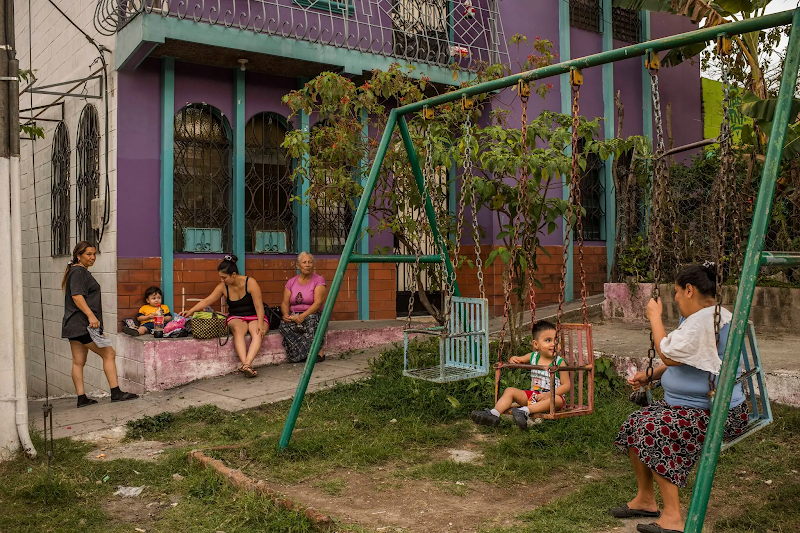
The La Campanera neighborhood in the town of Soyapango near the capital of El Salvador. This neighborhood was once ruled by the 18th Street gang. Photo: NY Times.
As politicians from Mexico to Guatemala promise to adopt Mr. Bukele’s tough measures, many critics worry that the country could become a model for a dangerous trade-off: sacrificing civil liberties for security .
“I remain pessimistic about the future of democracy in the region,” said Christine Wade, an expert on El Salvador at the University of Washington in Maryland. “The biggest risk here is that this country becomes a model for other politicians to latch onto and say, ‘We can bring security to our people if they are willing to trade away some of their rights,’ ” she said.
The government of El Salvador has arrested more than 65,000 people in the past year, including children as young as 12, more than doubling the country's prison population. According to government estimates, more than 5,000 people with no gang affiliation were wrongly arrested and later released. At least 90 people have died in custody, according to the government.
Human rights groups have documented a series of arbitrary arrests, as well as overcrowded prisons and numerous reports of torture by prison guards.
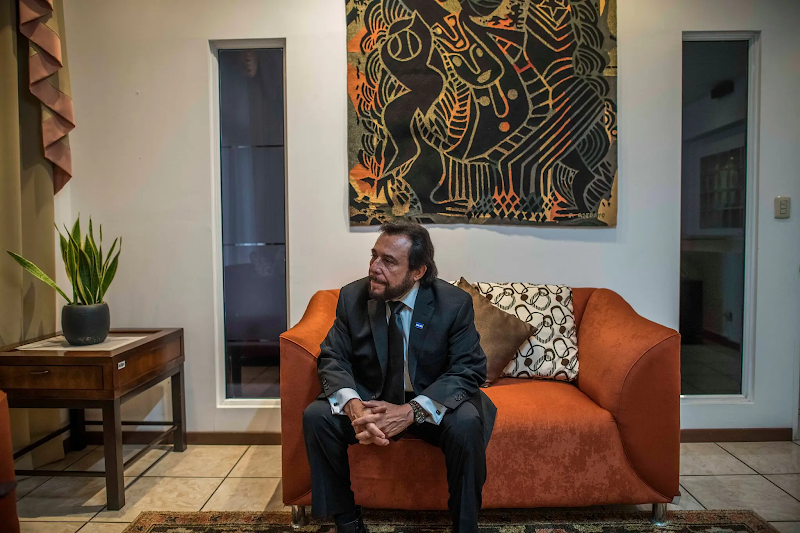
Vice President Felix Ulloa of El Salvador at his office in San Salvador. He commented: “We have given back freedom to the people.” Photo: NY Times.
El Salvador's Vice President Felix Ulloa said in an interview that reports of abuses by some authorities were being investigated and innocent people were being released.
Defending what he called the government’s “near-perfect” strategy, he remarked: “Of course there will be small errors. But now people can go out freely, shop, go to the cinema, go to the beach, watch football. We have given people back their freedom.”
In some of the country's most dangerous areas, abandoned buildings once controlled by gang members are being refurbished and repurposed.
On the streets of Las Margaritas, a neighborhood in the once-violent town of Soyapango in central El Salvador, people can park their cars without being forced by gangs to pay $10 a month.
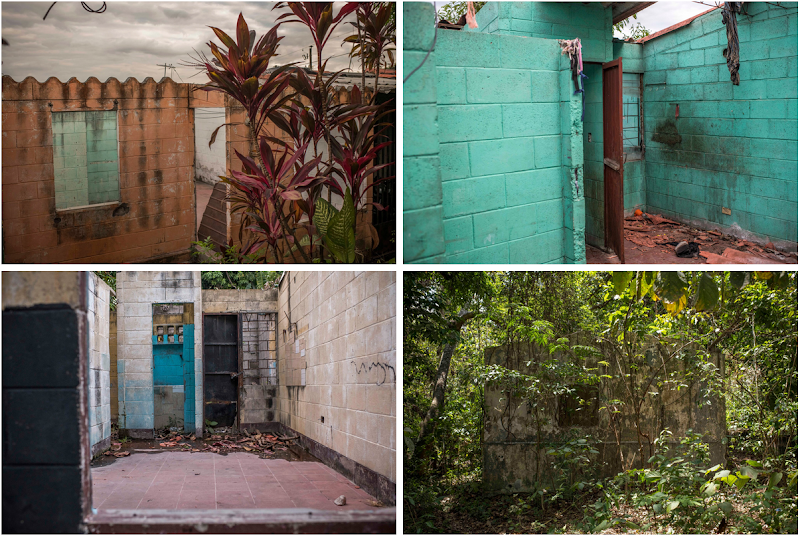
Abandoned homes that were controlled by gangs before being seized last year. Some homeowners had fled under threat from gangs that are slowly returning. Photo: NY Times.
According to some vendors at the town’s main market, before the gang busts, no one dared to come here without permission from gang members. Now the market is bustling with people coming here to buy and sell.
When Ms. Inglés tells shoppers about where she used to live—a cul-de-sac in Las Margaritas—they often gasp in amazement.
“They used to say, ‘Oh, no, you must have lived on the battlefield,’” recalls Mrs. Inglés, still nimbly dropping a cup of juice into a bag for a boy at the water stand she set up in front of her house.
She often looked across the street at the graffiti that read, “see, hear and shut up.” She said it was a gang slogan to scare people into keeping quiet about their crimes.
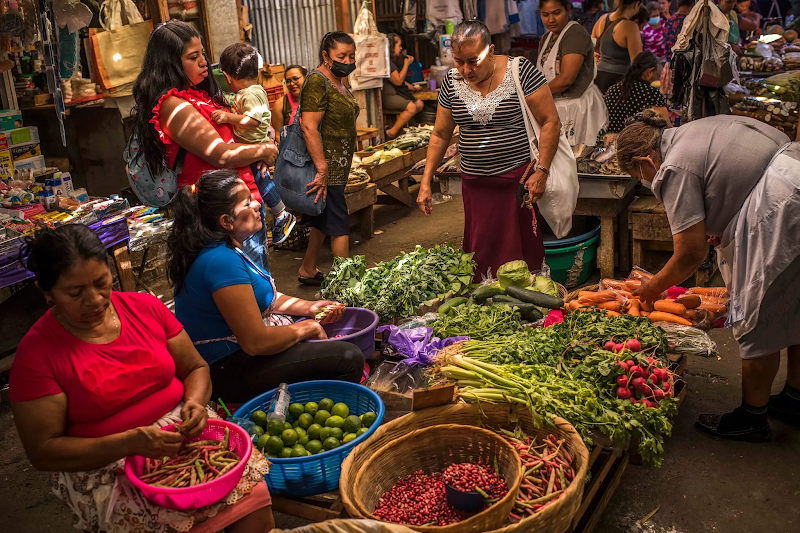
Before the gang busts, no one dared to come here without the gang members’ permission. Now the market is bustling with people coming to buy and sell. Photo: NYTimes
Gradually, Ms. Inglés says, they learned to keep their heads down: “The less you see of what they do, the less headaches you have to worry about.” The graffiti has now been painted over with a bird.
Juan Hernández, 41, has not set foot on the soccer field near his home for 10 years.
“That's where the gangs hang out,” he said. “You can get shot from everywhere.”
Now he uses the field to teach his 12-year-old son how to play soccer. “He told me he wanted to practice,” he said. “I told him, ‘Let’s go practice.’”
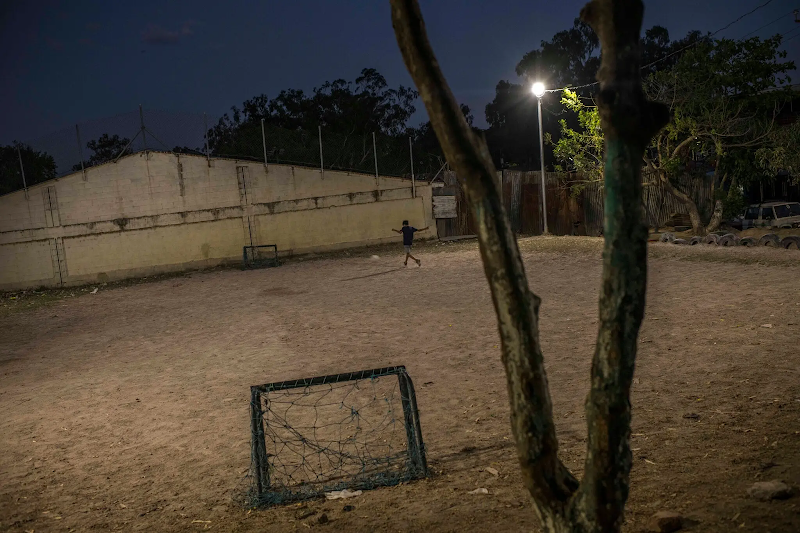
Children can now play soccer on a field that was once a gang hangout. Photo: NY Times.
The recent gang crackdown in El Salvador was preceded by a weekend of gang violence in March 2022 that left more than 80 people dead.
Before the gang busts, the Bukele administration struck a deal with gang leaders, demanding a reduction in the murder rate in exchange for benefits such as improved prison conditions, US officials said.
Analysts say the spike in violence is a sign that the accords have collapsed. Mr Bukele has denied any involvement in the deal.
Following the March 2022 killings, El Salvador's ruling party legislature declared a state of emergency. The military immediately invaded gang areas across the country, arresting 13,000 people in just a few weeks.
One of them is the son of Morena Guadalupe de Sandoval, who said she has not seen or spoken to him since he was arrested on his way home from work in the capital a year ago. She said the authorities have accused him of being a gang member, accusations she denies.
Every three months, she goes to the Izalco prison in the west of the country, where her son, Jonathan González López, is being held, where he is reportedly tortured by guards. She begs for information about him. Sometimes, she brings his wife and 2-year-old son with her.
The only thing she was told by the prison was that he was still in custody.
“I am very depressed,” said Ms. de Sandoval. “I feel terrible every time I think I will not see or talk to him again.”
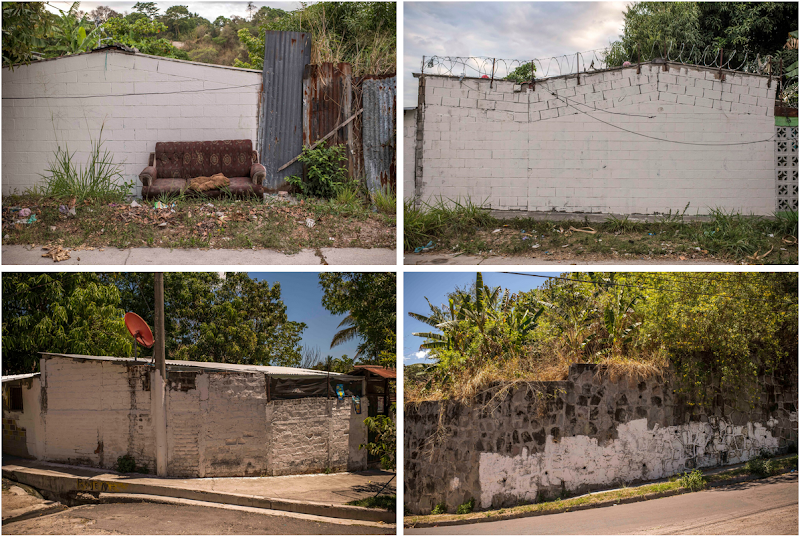
After gang busts, the graffiti was covered with white paint. Photo: NY Times.
In a December report, Human Rights Watch and an El Salvador organization called Cristosal interviewed people who were arrested during gang busts and later released. They described the terrible conditions they saw in the country’s prisons: assaults, deaths and food shortages.
According to reports, one detainee said guards held his head underwater to prevent him from breathing. Another said he was given two tortillas a day, which he had to share with another detainee.
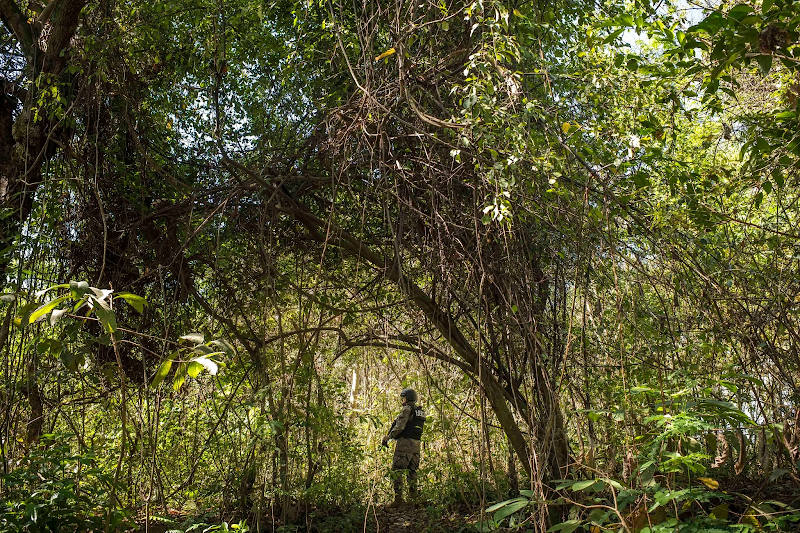
A soldier patrols the outskirts of Las Margaritas, a neighborhood once plagued by the MS-13 gang. Photo: NY Times
Ms. de Sandoval said the gang crackdown has improved living conditions in her neighborhood, an area once known as the Italian District, which was dominated by the MS-13 gang. She no longer sees young men standing on street corners smoking marijuana.
“Everything is much safer. The gang bust has done good in its own way.”
But she still can't separate those positives from her daily pain. Her son turns 22 this month. She keeps dreaming about him.
“I just want to see it,” she said. “From afar.”
Nguyen Quang Minh
Source




![[Photo] Top players gather at the 2025 Nhan Dan Newspaper National Table Tennis Championship](https://vphoto.vietnam.vn/thumb/1200x675/vietnam/resource/IMAGE/2025/5/23/9ad5f6f4faf146b08335e5c446edb107)



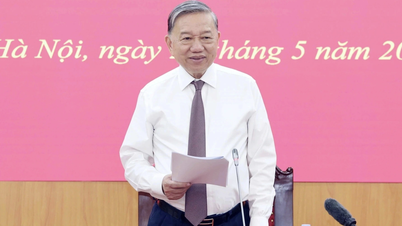

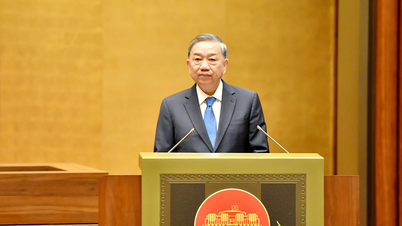

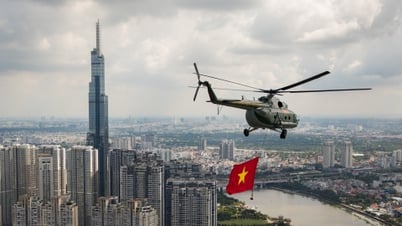

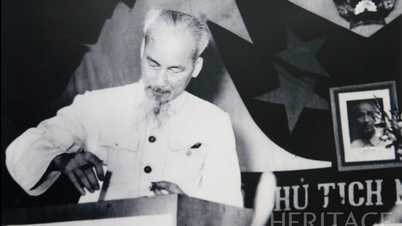
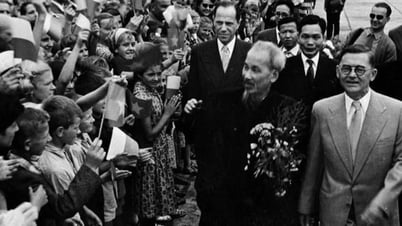

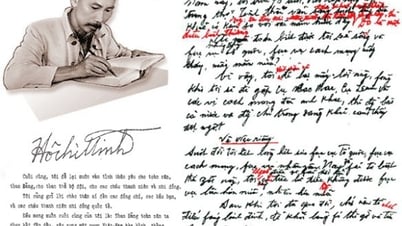




























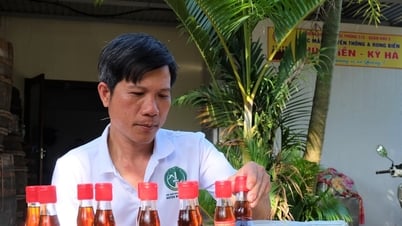
































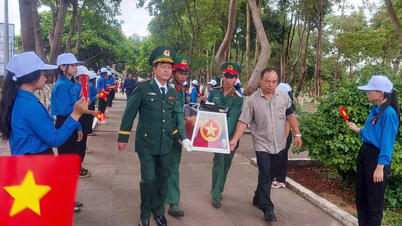
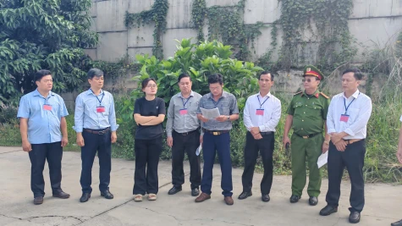













Comment (0)